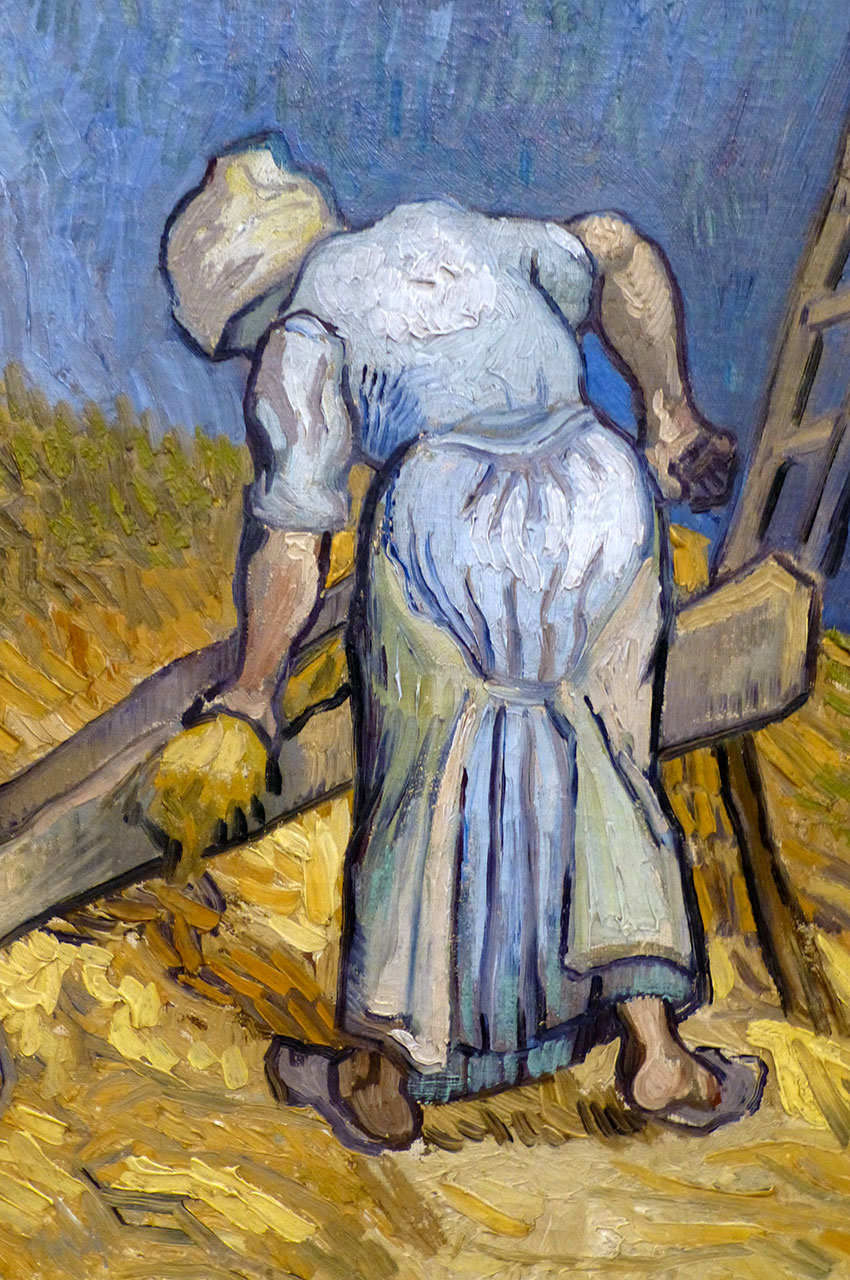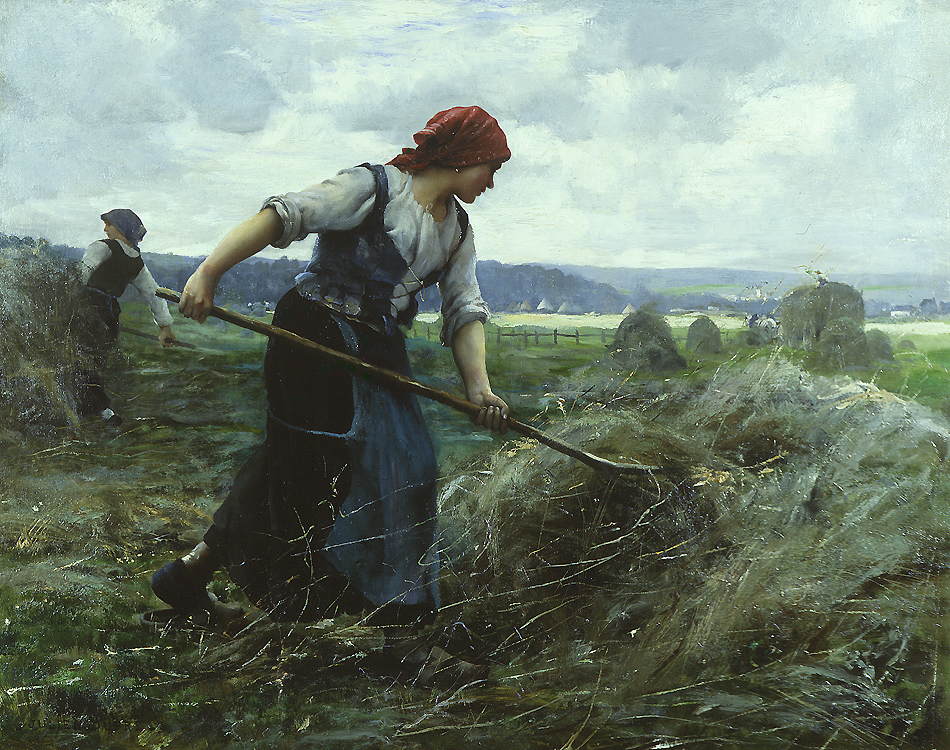|
You
can also view the message online
|
||||||||||||||
 Châtenay-Malabry (FR - 92290), June 22, 2020 EFITA newsletter / 937 - European Federation for Information Technology in Agriculture, Food and the Environment The informatique-agricole.org site now offers you the possibility of subscribing the RSS feeds of its two newsletters See RSS feeds to implement to ensure that you continue to receive this newsletter To unsubscribe this newsletter, please contact me directely: guy.waksman(a)laposte.net if this link Unsubscribe does not work. Please note that I changed the presentation of the links that are embedded in the name of the web service. 
To correspond with me (GW), please use this address: guy.waksman(a)laposte.net To subscribe the efita newsletter (please ask your friends and colleagues to test this link) Efita Newsletters subscription Weekly newsletters about ICT in Agriculture in English and French Both newsletters have around 14000 subscribers. >>> Last weekly EFITA Newsletters in English (created in 1999) Efita Newsletters >>> Last weekly AFIA Newsletters in French (created 20 years ago in 1997) Afia Newsletters >>> Statistics about the previous issue of the efita newsletter dated June 15, 2020 >>> Statistics about the afia newsletter dated June 11, 2020 >>> Last issue of the afia newsletter dated June 18, 2020 The informatique-agricole.org site now offers you the possibility of subscribing the RSS feeds of its two newsletters See RSS feeds to implement to ensure that you continue to receive this newsletter During the peak of the Corona crisis, I came across this interesting bit of information… The local mill (in a few other languages than German) has the best season in its 500 year history. Obviously, during or shortly after the peak of panic buying (Hamsterkauf in German), many consumers discovered local sources for their daily supply. See https://www.echo-online.de (limited access, in German) Thanks again for the EFITA newsletter. Contact: i. A. Dr. Esther MIETZSCH, Team Datenbanken und Wissenstechnologien Kuratorium für Technik und Bauwesen in der Landwirtschaft e. V. (KTBL) E-Mail: e.mietzsch(a)ktbl.de How we saw the future yesterday?
EU Agricultural “Green Deal”: A short-sighted and old-fashioned vision of ecology, by Philippe Stoop, member of the French Academy of Agriculture The current health crisis has raised global awareness of the fragility of our interdependent economies and its consequences for our food security. For agriculture, its most obvious and consensual consequence is that it reinforces the many voices, which have long been pushing for a relocation of agricultural production, for economic and ecological reasons, and for the sovereignty stakes involved. See itk.fr
Good old days (?????): Le Sillon, par Edouard Debat-Ponsan, 1897 COVID-19 crisis could ‘kick off digital revolution in agriculture by Natasha Foote Digital farming is set to boom in the aftermath of the COVID-19 crisis, given its capacity to help the EU farming sector improve its sustainability and recover from the outbreak’s impact. But there are also considerable concerns raised about the pace of this change and whether farmers are adequately prepared for it. See euractiv.com New AG International, the world's leading publication on high tech agriculture See New AG International
Airbus launches precision agriculture tool AgNeo AgNeo is Airbus’s new integrated solution for precision agriculture, offering best-in-class services from Airbus for deriving in-season actionable information utilising satellite imagery. From timely directed scouting alerts to advanced biophysical parameters, Airbus has the reliable crop imaging solutions you need. See intelligence-airbusds.com Biodegradable sensors Matching inputs to crop needs using new soil sensor. See New AG International Canadian growers build on variable rate success Mike Cornelissen and his family are nominated for our Top 10 most innovative arable farmer search because they make variable rate work. Starting with a simple yield monitor in the late 1990s, the Cornelissen family now uses variable rate technology in almost every part of their business. Watch the interview we had with Mike Cornelissen!
Machinery: Zürn launches Top Cut Collect seed head mower The Top Cut Collect from Zürn Harvesting trims unwanted plants and disposes of the seed heads. See futurefarming.com Autonomous vehicles: Autonomy project to make 10,000 combines self-driving Russian companies EkoNiva and Cognitive Pilot aim to equip 10,000 combine harvesters with autonomous driving systems in the coming three years. See futurefarming.com Video: How can robotics start-ups respond to the urgent need for automation in the food industry? June 16, 2020, by Louisa Burwood-Taylor During our conversation we cover: – why robotics have taken a while to gather pace in food and agriculture – what it takes to scale a robotics startup and the core challenges facing startups – what the future looks like for these startups: will they integrate with others or become platforms in their own rights, able to perform multiple tasks across multiple crops? – AgFunder’s thesis and approach to investing in robotics – we recently conducted a deep-dive into the category – the challenges of investing in the space as a venture capital firm — hardware is hard etc. – how applicable the technology is for different sized farms in different parts of the globe – and much more, with loads of questions from participants. See agfundernews.com Good old days (?????): La Moisson de Julien Dupré Digital Ag: Why is predicting return on investment per field so hard? Every time I visit agritech events, I discover new farm management software. Large and small companies from the agriculture and technology sectors can offer a valuable set of digital farming tools. Their farming software has ever-present connectivity, collects a wide range of data, and offers meaningful analytics on farmer-friendly dashboards. Some of these solutions can predict return-on-investment (ROI) from yields by applying data science, machine learning, and artificial intelligence. According to MarketsandMarkets, the farm management solutions market is growing at a compound annual growth rate of 14%, and will reach $2 billion in value by 2023. See agfundernews.com Good old days (?????): Peasant Woman Binding Sheaves (after Millet) by Vincent Van Gogh (1889)
Fintech startup Jai Kisan banks $3.9m to give India’s smallholder farmers access to cheaper finance See agfundernews.com Why the world’s largest beer company is investing in agtech “We’re the largest beer company in the world and the largest user of malting barley, so when you think about where investment into breeding research or the supporting tech comes from, if we’re not going to do it, who will?” Katie Hoard, global director of Agricultural Innovation & Sustainability at Anheuser-Busch InBev is speaking to AgFunder about the company’s recent partnership with Sentera, a drone imagery analytics company. See agfundernews.com
Does Glyphosate Cause Cancer? Glyphosate, in fact, is one of the safer pesticides in use (including many organic pesticides). It has replaced far more toxic herbicides. Opposing glyphosate because of unwarranted fears of toxicity is likely to cause harm due to whatever replaces it. Tilling is bad for the soil and releases CO2 into the atmosphere, and we cannot feed the world through hand weeding. Herbicides have to be part of the equation, and glyphosate is one of the safest out there. See theness.com What the Pandemic Reveals About the Male Ego Why are the rates of coronavirus deaths far lower in many female-led countries? I compiled coronavirus death rates for 21 reasonably matched countries around the world, 13 led by women and eight by men, and the difference was huge. On average, death rates from Covid-19 were more than five times as high in the nations led by male leaders. …/… One trap for female politicians is that brashness can be effective for male candidates, but researchers find that male and female voters alike are turned off by women who seem self-promotional. That forces women in politics to master the art of communicating effectively in a low-key way — just what’s needed in a pandemic. “Perhaps the skills that have led them to reach the top,” said Rimoin, the U.C.L.A. epidemiologist, “are the same skills that are currently needed to bring a country together.” Nicholas KRISTOF See NYT Lords seek to allow gene-editing in UK ‘to produce healthy, hardier crops’ Changes could introduce gluten-free wheat and disease-resistant fruit and vegetables, say peers. See The Guardian Good old days (?????) : Retour à la ferme (vers 1895), Huntington Museum of Art
The empty glass (Irish joke) The barman says to Paddy, “Your glass is empty, fancy another one?” Looking puzzled, Paddy says, “Why would I be needing two empty feckin’ glasses?” The distribution of this efita newsletter is sponsored by vitisphere.com Please, contribute to the content of your efita newsletter, and advertise your events, new publications, new products and new project in this newsletter. Without your support, it will not survive! Contact: Guy WAKSMAN E-mail: guy.waksman(a)laposte.net To read this newsletter on our web site See Afia The archives of this newsletter See Afia About the EFITA mailing list You can use the efita moderated list (> 15000 subscribers) to announce any event / product / web site / joke (!) related to IT in agriculture, environment, food industry and rural areas. If you want to subscribe a friend, please fill in his form. If you do not wish to receive our messages, please fill in the following form... |








